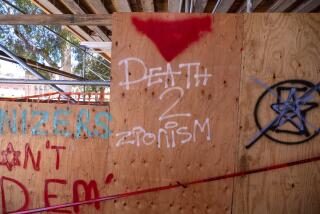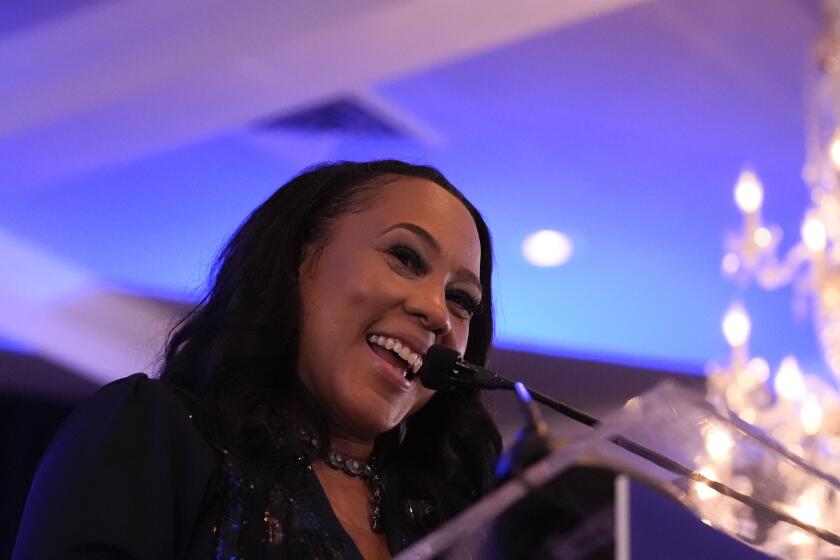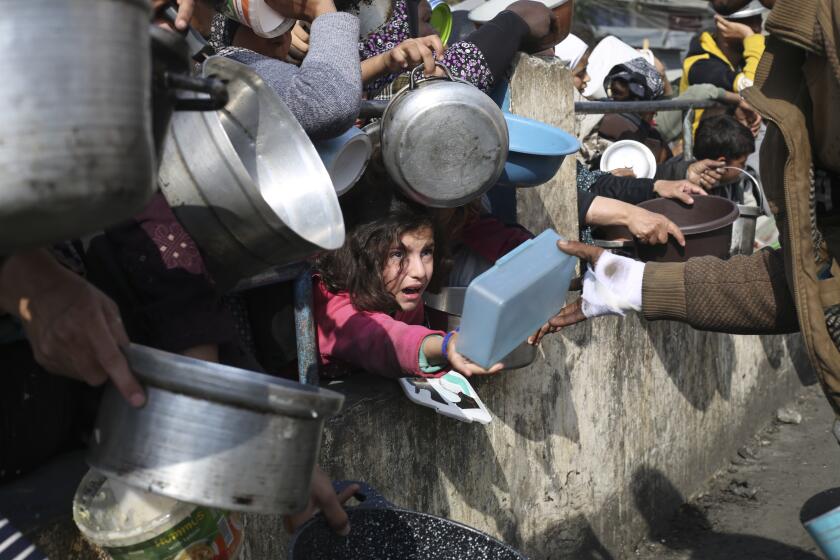Pope Accepts Resignation of Milwaukee Archbishop
MILWAUKEE -- Pope John Paul II accepted the resignation Friday of the archbishop of Milwaukee, who had long struggled to open his church to modern sexual values only to leave torn up over his own moral complexities.
Archbishop Rembert Weakland, the spiritual leader of Milwaukee Catholics, has been accused of sexually assaulting a man 23 years ago. He denies there was an assault but has admitted to others to a relationship. The archdiocese paid his accuser $450,000 out of church coffers to prevent a lawsuit and to obtain his silence.
Weakland is “remorseful for the strain and stress this brought on the archdiocese and the church” and plans to make a public apology, said his spokesman, Jerry Topczewski, at a news conference Friday.
Weakland’s resignation marked a particularly poignant moment in the four-month-long sexual abuse scandal that has resulted in accusations against more than 200 Roman Catholic priests and put the church’s American leaders under pressure to adopt a national “one-strike” guideline.
Weakland submitted a resignation letter to the pope in April on his 75th birthday, the mandatory retirement age for bishops. But after Paul Marcoux, who says Weakland “date raped” him in 1979, broke his silence on ABC News this week, the archbishop asked the pope to speed up the resignation. He hadn’t expected to leave until fall. But Weakland said in a statement Thursday he did not want to be an obstacle “to the church’s search for credibility” when it was in crisis.
The pope made the resignation effective immediately, and an auxiliary bishop was named Friday to assume Weakland’s duties while the Vatican looks for his replacement to lead Milwaukee’s 600,000 Roman Catholics.
Weakland was not merely the most prominent churchman to face sexual misconduct charges, he also enjoyed high moral standing among his fellow bishops, who regarded him as a rare progressive agitator for opening the church on many issues, sometimes upsetting his conservative brothers. He had quietly pressured for the ordination of women and worked to bridge the gap between conservative and liberal church thinkers.
In addition, his downfall came not through the molestation of a child, a felony, but for a relationship with a theology student who was 31 at the time, a circumstance that may cast more uncomfortable light on a priesthood that experts say is at least one-fifth homosexual.
The worldwide leader of the Benedictine order before going to Milwaukee, Weakland was also known for starting a program there 12 years ago that provided support for priest abuse victims and treatment for offenders.
“This is hard for all Catholics here,” said Jim Olsen, a 42-year-old developer who has attended numerous Milwaukee-area parishes during his 20 years here. “This is a very Catholic city. And almost everyone knew Archbishop Weakland and admired him.”
Milwaukee Dist. Atty. E. Michael McCann has acknowledged that Weakland told him many years ago that he had had a consensual, if not troubling, relationship with a man. “He advised me that he had a relationship that had compromised him in some fashion,” McCann told the Milwaukee Journal Sentinel in Friday’s editions. “He was troubled by it, but there was nothing criminal in it.”
But McCann said he would now consider appointing a special prosecutor to determine the source of $450,000 the archdiocese paid to Marcoux after he threatened to file a civil suit against it and Weakland in the late 1990s. McCann said he wanted to know whether the money came from specific programs such as Catholic Charities or from general contributions.
Topczewski, the archdiocese spokesman, told reporters Friday that none of the money used to pay Marcoux came from annual fund-raising campaigns or from individual parish contributions. Generally, settlements for abuse claims are paid from investment income, rental property and other sources, he said.
Weakland has said he had paid into the archdiocesan coffers more than $450,000 by giving over all his lecture and writing fees during his tenure as bishop. Church officials apparently plan to provide an exact accounting.
Marcoux was taking theology courses at Marquette University in the late 1970s when he met the archbishop, who one evening invited him to his apartment to discuss Marcoux possibly joining the priesthood. Marcoux, then 31, claims Weakland, then 52, forced himself on him sexually. Marcoux, now 54, told reporters that their sexual relationship did not go further. But in an 11-page, handwritten letter to Marcoux in 1980, Weakland reveals an intimate relationship between the two men, though it does not appear to provide support for Marcoux’s claims of assault.
The archbishop told Marcoux in the letter that he felt he was not being honest with God and that he felt like “the world’s worst hypocrite. So gradually I came back to the importance of celibacy in my life.”
While Weakland had given Marcoux $14,000 of his own savings for a church project 17 years later, in 1997, Marcoux wrote to Weakland asking that the two meet with “objective arbitrators” in hopes of “reaching some closure” on the so-called abuse incident. The payment and confidentiality agreement were done in 1998.
*
Baum reported from New York, Slater from Milwaukee.
More to Read
Start your day right
Sign up for Essential California for news, features and recommendations from the L.A. Times and beyond in your inbox six days a week.
You may occasionally receive promotional content from the Los Angeles Times.






